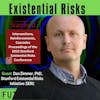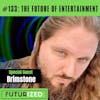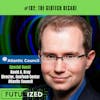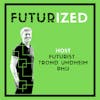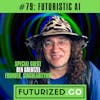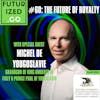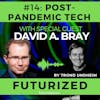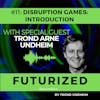Killer Applications of Next Decade’s Edge Computing

Futurist and author Trond Arne Undheim interviews Carlo Daffara, CEO and co-founder of NodeWeaver, discussing the future of edge computing.The takeaway is that the importance of edge computing lies, not in the technology itself, but in what it delivers...
Futurist and author Trond Arne Undheim interviews Carlo Daffara, CEO and co-founder of NodeWeaver, discussing the future of edge computing.
The takeaway is that the importance of edge computing lies, not in the technology itself, but in what it delivers, namely killer applications across industries. The edge is based on the realization that given the amount of data we now generate, all of that data cannot always be moved around.
After listening, check out NodeWeaver as well as Carlo Daffara's profile on LinkedIn (cdaffara).
The show is hosted by Podbean and can be found at Futurized.co. Additional context about the show, the topics, and our guests, including show notes and a full list of podcast players that syndicate the show can be found at https://trondundheim.com/podcast/.
For more about the host, including media coverage, books and more, see Trond Arne Undheim's personal website (https://trondundheim.com/) as well as the Yegii Insights blog (https://yegii.wpcomstaging.com/). Undheim has published two books this year, Pandemic Aftermath and Disruption Games. To advertise or become a guest on the show, contact the podcast host here. If you like the show, please tell all your friends, subscribe and consider rating it five stars.
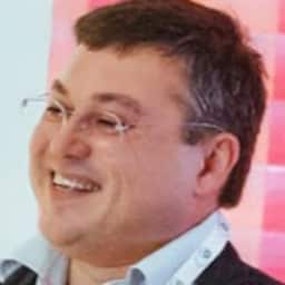
Carlo Daffara
CEO & co-founder, Nodeweaver
Carlo Daffara is co-founder and CEO of NodeWeaver, developers of the first autonomous and self-managing edge cloud platform; formerly head of research and development at Conecta, a consulting firm specializing in open source systems. Italian member of the European Working Group on Libre Software and co-coordinator of the working group on SMEs of the EU ICT task force. Since 1999, works as evaluator for IST programme submissions in the field of component-based software engineering, GRIDs and international cooperation. Since 2000, he is member of the Internet Society (ISOC) working group on public software as part of the group committee, and contributed to the open source part of the article presented by ISOC to Unesco on global trends for universal access to information resources. Coordinator of the open source platforms technical area of the IEEE technical committee on scalable computing, has been coordinator of the Open Source competence center of the DiTeDi digital district.
New to Futurized podcast?
Here are some great episodes to start with. Or, check out episodes by topic.



































